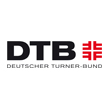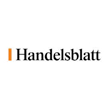CURRENT AFFAIRS & CASES
Informazioni attuali sull'azienda nella panoramica.
In questa panoramica vi teniamo aggiornati sui nostri progetti attuali, le attività e altro ancora.
Data-based club management in amateur and popular sports
Prof. Dr. Alfons Madeja, inventor and founder of the Bundesliga Barometer as well as a researcher, lecturer and consultant for more than 30 years in economics, sport and culture, initiated now 10 years ago together with his son Maximilian Madeja as a of SLC Management - a consulting and market research company based in Nuremberg - initiated the digital Professionalization in the field of data-based club management both in the professional, as well as in the amateur and popular sports sector.
The doings and actions as well as the Offers and achievements of an association are not to the End in itself and also not only in the Sense of the board of directors of the association management to consider. Therefore it is it one of the most important tasks that the association management permanently with its members and other target groups as well as and its environment about the extent to which its services, infrastructure infrastructure and development planning are going in the right direction and direction and are accepted with a high level of satisfaction. satisfaction. How can modern management structures and tools be transferred to club management? How can amateur and grassroots sports clubs also make data-based decisions more easily and make it member and customer focus in a practicable way? As a modern and innovative tool the Club Information System (CIS©) developed by SLC Management can be used, which can be used in professional as well as amateur and popular sports clubs/associations and federations. This enables the club management to orientate themselves according to the latest orientation and to make resource-saving and to make data-based decisions make.
Club ecosystem: recognize stakeholders.
A major problem in associations is the mostly missing view of the association executive committee on the effect of the own acting and a too small and too rare self-criticism. Therefore it is therefore necessary to obtain the opinion of those with whom the association is association has to deal with on a permanent basis, the stakeholders. These are various interest groups which are of particular are of particular importance. In this context a distinction is made between internal and external stakeholders. Opinion-forming, especially on the part of the members is important for the following two areas:
- Doings and actions of the association as a whole with regard to:
- Strategic and operational .
- investment bases and -decisions
- Member decisions
- Financial changes in the Association
- Doings and actions of the departments:
- Evaluation of the departmental sports .
- New and further development of the Department sports
- Evaluation of departmental control
The catalog given here can be of course arbitrarily extended Be extended, but represents that such a such information management through all levels and activities of the and activities of the association and is the basis a modern, data-based control of the association is.
Permanent, dynamic "general meeting".
The individual and club-specific member panels set up within the within the framework of the Club Information System (CIS©) allow, for example, permanent permanent access to all members and therefore their dynamic involvement and dynamic involvement and opinion-forming on what is happening in the club. One can then of a kind of "permanent members' meeting" and thus and thus in the times between two proper general meetings to create a corresponding opinion and basis for decision-making as well as a correspondingly sensible allocation of resources. This gives us the chance to concentrate on what is essential and necessary. on what is essential and necessary. This kind of data-based management of the association using the opinion data of members and customers (course participants, camps and other offers of the association) creates further supporting effects for the work of the club and Department management..:
- Valuing the members .
- Higher identification with the ongoing tasks and issues of the Association action
- Preparation of Majority decisions
- Permanent evaluation of the Association services
- Creation of quality metrics
- Adhoc collection of current Opinions for special events (e.g. Corona).
The so-called four "I "s of the important for a successful association management data-based association management according to Madeja are shown in the following figure:

Data-based association management in external relations.
Not only for the internal association work, but especially for the externally effective (external) association work, the instrument of opinion data is an important factor in the in the context of the communication policy of the association.
For example, the following areas and effects are mentioned here:
- Member acquisition: use of the evaluation of the performance of the Association in the recruitment of new members. For this purpose, the assessments of the range of services and its implementation are particularly suitable.
- Sponsorship management: Especially in the area of sponsorship acquisition and sponsorship support, in the entire sponsorship commitment of an association plays the opinion survey of the members an enormously large role. Of course, a commitment sponsor to a club is based on the is based on the hope that the club's members view the sponsor's offers in a correspondingly positive light and are also prepared to to buy them. In this respect the sponsor can be presented with corresponding data, e.g. that his commitment is very positive, its product credible and competitive advantage and thus also the hope for a purchase intention by the Member can be aroused.
- Communication, marketing and Press work: Also in the context the media and press work it is necessary corresponding statements to be able to back up with facts. The media are prepared to believe statements when they are if they can be backed up with valid can be.
Optimizing finances through data-based club management.
It is important to consult members on any members on all issues that affect their finances. concern. This concerns both the income, as well as the expenditure side. This automatically results in the the most important areas of a data-based association control with direct and indirect and indirect influences on the financial management of the association:
The catalog given here represents an orientation and can of course arbitrarily in width and depth can be extended. At its core it concerns here around the information management with the appropriate target groups in order to analyze and tap revenue and cost-cutting potentials that and exploit potential for revenue and cost and cost potentials, which arise primarily from the above-mentioned areas of pricing and willingness-to-pay analyses and and -analyses" result.
- Revenue increases from the pricing and willingness-to-pay analyses: this affects all existing and potentially collectable dues and fees from basic membership dues to departmental dues to additional contributions for special offers and user fees. This ensures that the association does not permanently provide certain services below value or against the actual expectation and willingness to pay offered free of charge.
- Cost reductions from the bid evaluations and analyses: Associations very often maintain services provide services that are considered by members to be not considered necessary and accordingly have no impact on member retention or even have a financially deficit effect in the overall view have. In such cases cost savings can be made in the areas affected by the service to be eliminated. are made.

Building a data-driven club management system.
The scarcity of human resources in associations usually prevents an organic further development towards modern, future-oriented structures. In addition, especially in the context of and external interest groups, the credibility and validity of the data used and validity of the data used used in the management of the association is important. Here, the involvement of external companies or service providers specializing in amateur and grassroots sports clubs can create added value. and service providers can create added value and also solve the problem of the problem of the scarcity of human resources. Last but not least management of the club must not be alone with any data, but to focus on the analysis, assessment and interpretation and interpretation as well as recommendations for action arising from it, and thus be able to fully exploit the potential of modern, data-based management of the association to be able to exploit

For more information, contact
Maximilian Madeja
Managing Director, Chief Research Officer (CRO)
Email: m.madeja@slc-ag.com
Fon: +49 (0) 911 - 54 81 830
or directly on our contact point for amateur and grassroots sports clubs at https://www.slc-management.com/customers/vereine/









































































































